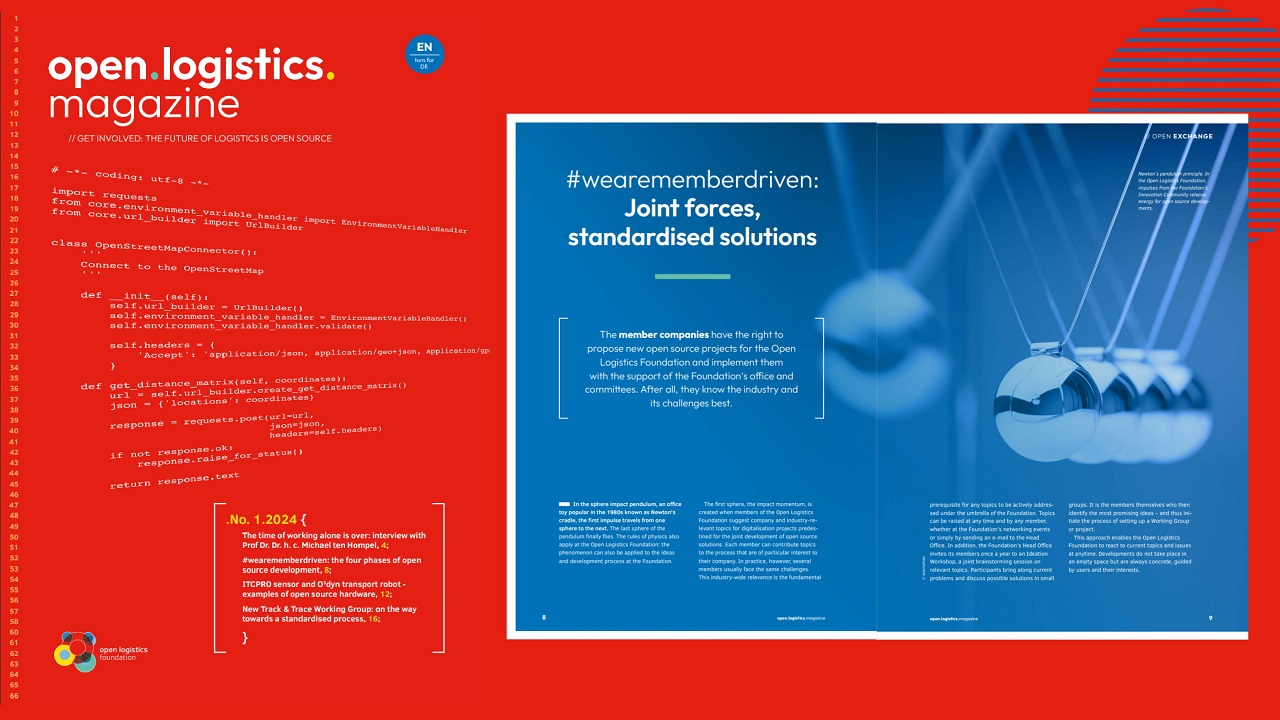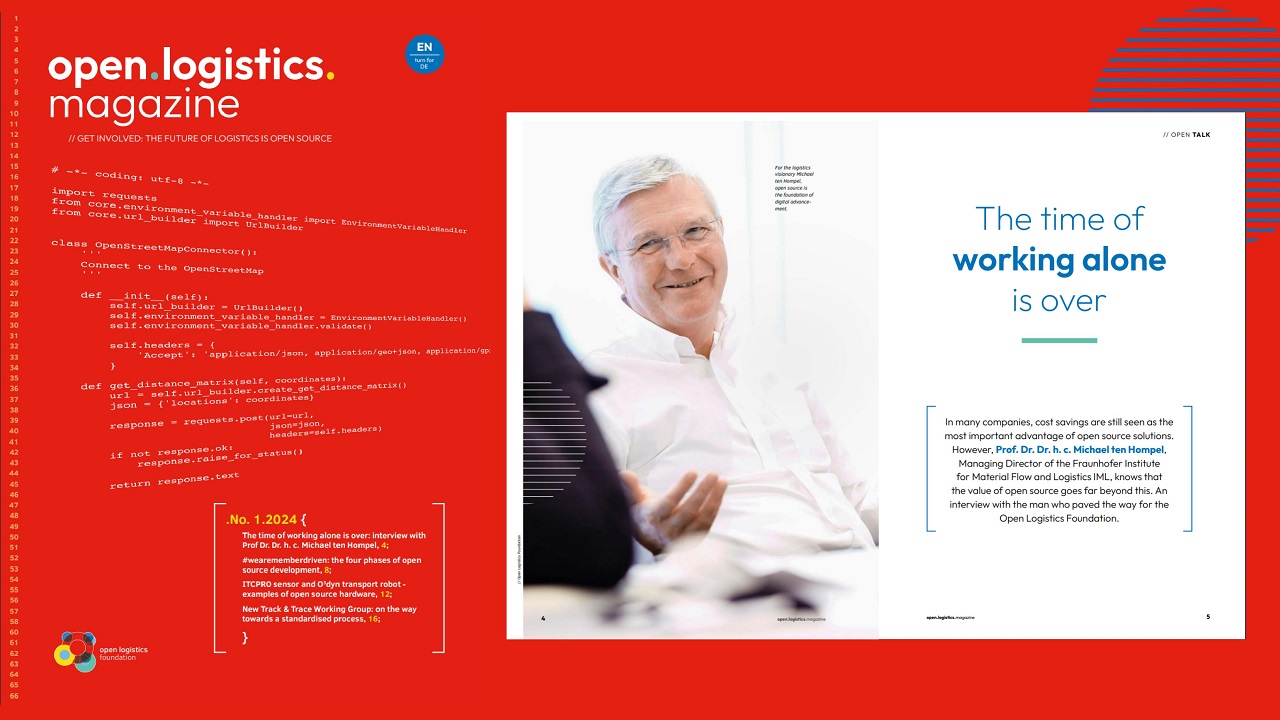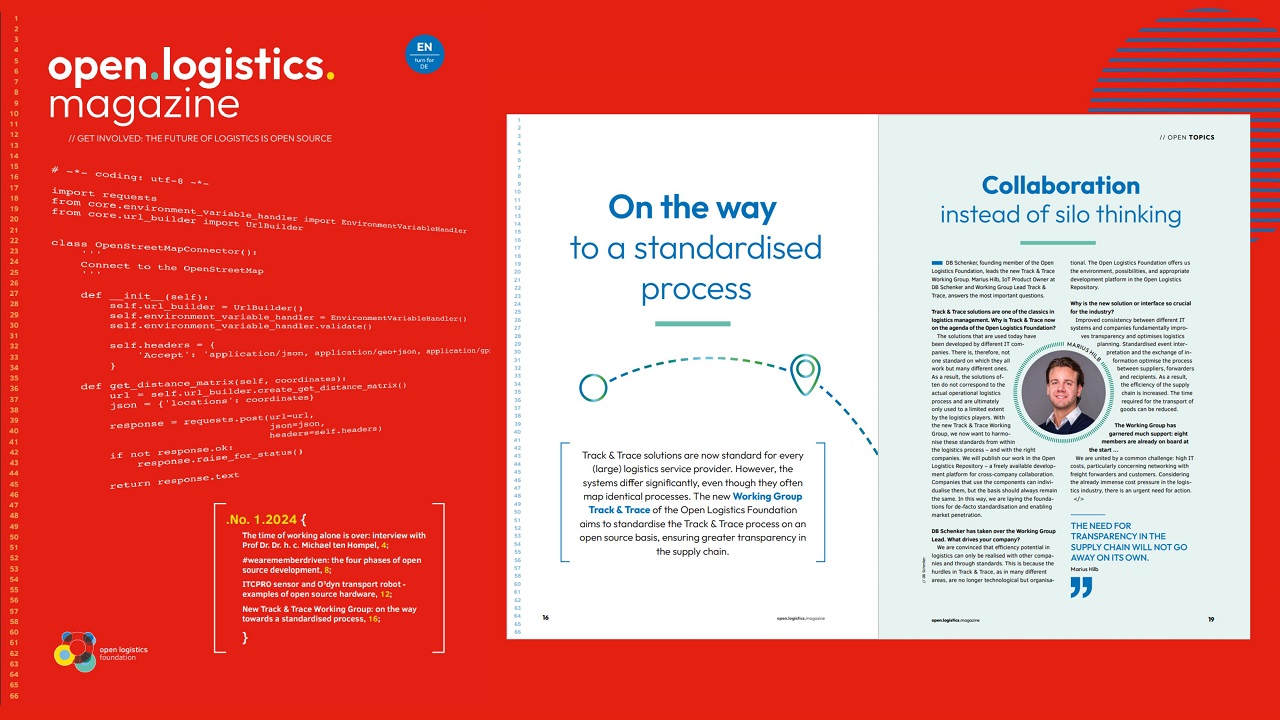Basically, there are two different types of licence in the open source world – the copyleft licence and the permissive licence:
- The copyleft licence forces companies to make modifications and further developments of the software or other works available under identical conditions to those of the original (copyleft) licence. This means that they must also make the source code accessible if the product is passed on, e.g. sold. How strong or weak the copyleft is, is regulated by the respective licence. One of the best-known representatives of copyleft licences is the GNU General Public License (GPL).
- In contrast, the permissive licence gives companies the freedom that further developments based on the open source software do not have to be placed under the same licence. This also enables the use in proprietary products without the obligation to make the modified source code accessible.
The Open Logistics Foundation has chosen the second licence type – for good reason. “The declared goal of the Open Logistics Foundation is to support European logistics on its way to more efficiency and sustainability. The commercialisation of the OS components that our community develops is also explicitly desired in proprietary products,” says Andreas Nettsträter. “Each further development – every new product and every new service – contributes to strengthening the competitiveness of logistics.” The Foundation thereby directly achieves another goal: because all new products and services are based on uniform components and thus make a further contribution to standardisation in logistics.

“The commercialisation of the OS components that our community develops is also explicitly desired in proprietary products.”
Andreas Nettsträter, CEO, Open Logistics Foundation
Comprehensive usage rights
In the “Open Logistics License”, the Foundation regulates the terms and conditions for the use, reproduction and distribution of source and object codes that are available in the Foundation’s repository. The companies that have developed and published the open source components under the umbrella of the Foundation and placed them in the repository donate the source and object codes to the Foundation. With the “Corporate Contributor License Agreement”, they explicitly give non-exclusive licensing and exploitation rights to the Open Logistics Foundation. The Open Logistics Foundation can therefore allow users to incorporate the source and object codes into other components, combine them with other components, modify them and transform them – including commercial use.
If companies and especially start-ups use finished standard components from the Open Logistics Repository for basic functionalities, they can use their usually limited resources to develop unique (market-differentiating) functionalities.
European legal standards
In addition to the rights of use, companies that are open-minded about open source are also and especially concerned with other legal questions regarding the use of open source software. In doing so, they are not least focusing on the areas of warranty and liability. Many established open source licences are usually based on US legal standards. “When designing our licence, we therefore attached importance to ensuring that both the regulations in the area of use and patent rights as well as the regulations on liability and warranty are in line with European legal standards,” says Andreas Nettsträter.
All regulations have been designed in such a way that they grant comprehensive rights to developers as well as users and applicants:
- The regulation of the rights of use is not fundamentally different from the permissive licences in the US, but it is more detailed. Its structure is based on the Supplementary Terms of Contract for the Procurement of IT Services (EVB-IT) known in Germany. The chosen formulations offer more security to the legal departments of companies assessing such a licence under German law.
- The regulations on warranty and liability are just as important for the companies that make source and object codes available in the Open Logistics Repository as they are for companies that use them. The challenge was to adapt the comprehensive warranty and liability exclusions familiar from American licences to European legal standards. A general exclusion is not possible under German law, but was limited in the Open Logistics Licence as far as reasonable and possible, e.g. by limiting it to gross negligence.




